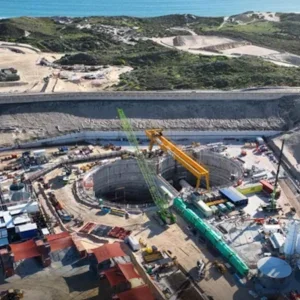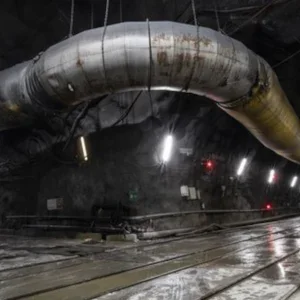As many as nine rail tunnels, extending a total estimated distance of 6km, are envisaged at key locations across the 1,061km length of the national railway network during phase one of its implementation.
A tender floated by the government last week inviting bids for a contract to undertake the preliminary design of the rail network has elicited strong interest from local and international engineering consultancy firms.
More than a dozen companies have so far collected tender documents indicating their initial interest in participating in the bid. The list includes Mott MacDonald, Sener, Bonifica SpA, DB International, Parsons, Yas Consulting Engineers, Dar Al Handasah, Consolidated Consultants, Al Manarah Engineering, Ehaf Consulting, Khatib & Alami, Hoehler &
Partner, and INECO (Spain).
A key component of the consultant’s brief is to undertake the preliminary design of the complete infrastructure and systems covering all segments of the rail project, while also securing the basis for the implementation of a fully operational railway system interoperable with the Gulf Cooperation Council (GCC) network.
Provisional assessments of the key infrastructure components of the national network underscore the sheer size of the civil works necessary to be undertaken by contractors during the implementation phase.
For instance, given the undulating terrain through which the alignment crosses in some parts of the country, gargantuan volumes of earth excavation and filling will have to be undertaken, say officials. Soil cutting and filling works along the length of the corridor is estimated in excess of a mammoth 210Mcu.m. More of half of this volume is required to be undertaken along the Muscat — Duqm and Misfah — Sinaw stretches.
Adding to the huge price tag of the project is the large number of rail tunnels and viaducts that will be required particularly along the northern and southeastern segments of the network. Of the estimated 6km of railway tunnels envisioned along the network, a third of this length will be required along the Sohar — Buraimi — Al Ain stretch. In all, three major tunnels of a total length of 2.5km are proposed to be built along this corridor.
Officials also reckon the need for as many as 18 railway viaducts, some several kilometres long, to be built as part of the project’s basic infrastructure. Viaducts are envisaged on the Sohar — Zuroub, Sohar — Al Hazm, Barka — Misfah, Misfah — Sinaw, and Sohar — Khatmat Malaha stretches.
Another major cost component is linked to the sheer length of rail and wadi bridges — estimated at 35 kilometres in all — that will be built as part of the rail project. Major rail bridges are planned along the Sohar — Al Hazm, Barka — Misfah, Sohar — Zuroub, Zuroub — Al Ain and Sohar – Khatmat Malaha stretches. Bridges spanning wadis criss-crossing the alignment are also proposed along the Sohar — Al Hazm, Barka — Misfah — Sinaw, Sinaw — Duqm, and Sinaw – Ibra stretches.
Also underlining the gigantic size of the project is the staggering number of flyovers and underpasses – roughly 130 in all – that will be constructed at key points along the network. Scores of pedestrian and animal crossings are envisaged as well.







